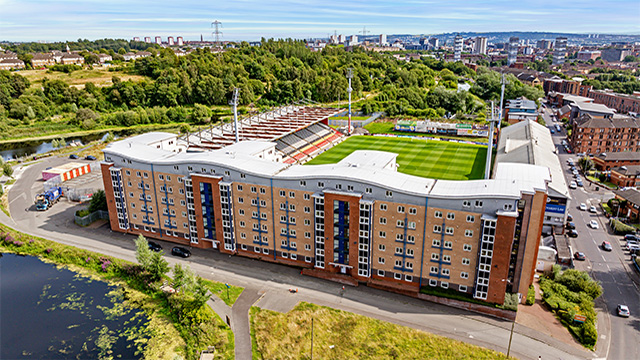AI in real estate still needs a human touch
COMMENT As a data-rich industry always looking at ways to get ahead, real estate stands to benefit enormously from artificial intelligence.
According to the findings of a recent survey we ran, large real estate businesses are already well into their AI adoption journeys. Some 75% of sector respondents said they were using AI for IT and cybersecurity purposes, while 71% said they were using it in customer services. A further 71% said they had deployed AI in finance and accounting, and 69% were using AI in operations and manufacturing.
This data suggests that AI is quickly taking hold in the real estate industry’s back-office functions and increasingly on operational fronts.
COMMENT As a data-rich industry always looking at ways to get ahead, real estate stands to benefit enormously from artificial intelligence.
According to the findings of a recent survey we ran, large real estate businesses are already well into their AI adoption journeys. Some 75% of sector respondents said they were using AI for IT and cybersecurity purposes, while 71% said they were using it in customer services. A further 71% said they had deployed AI in finance and accounting, and 69% were using AI in operations and manufacturing.
This data suggests that AI is quickly taking hold in the real estate industry’s back-office functions and increasingly on operational fronts.
Up to scratch?
Two emerging areas of AI deployment are property management and due diligence. This is reflected in the growth of specialist AI-powered proptech solutions, such as AI lease and title reporting.
The technology’s capacity to summarise large data sets is extremely useful in these fields, and while actual product performance can fall short of the marketing spiel, if property professionals invest time and resources to train and customise these tools, they can be significantly strengthened to deliver much of the time and cost savings they promise.
Experience suggests, however, that AI-powered solutions developed for the industry still have some way to go to match human capabilities.
Three common challenges are:
Consistency of output – AI-powered due diligence tools often produce different responses on repeat runs using identical inputs;
Limitations on ability to compare and report by exception; and
Reliability of output – the reality is that AI still makes mistakes.
The last of these challenges, reliability of output, raises the question of liability. Currently, there still needs to be expert human oversight of the reporting results of AI. Going forward, the game-changer will come when AI tools offer reliance (likely to be backed by insurance) without human oversight.
As it stands, there is a vast array of AI proptech products to choose from, which share many of the same strengths and weaknesses. While off-the-shelf AI products are expected to bring wholesale improvements for the real estate sector, mass adoption of generic solutions will quickly erode the competitive edge of early adopters. Hence the attractiveness of AI solutions developed in-house by real estate businesses that promise to differentiate their inventors through unique intellectual property.
Skills shortage
Development is partly curtailed by skills shortages in this area, however. According to our survey, just over half – 51% – of real estate sector respondents said they were concerned about AI skills gaps within their organisation.
While a rich seam of underlying AI development skills is crucial for the industry to keep pace with the AI revolution, the ultimate user experience goal of these solutions is to make them easily accessible by experienced property professionals who do not necessarily have a technical background.
For property professionals, whether they are managing buildings, teams or legal workload, there is a clear drive across the sector to find and adopt AI solutions that will boost real estate’s efficiency, accuracy and productivity.
Emma Broad is managing practice development lawyer at Dentons
Photo © Dentons











